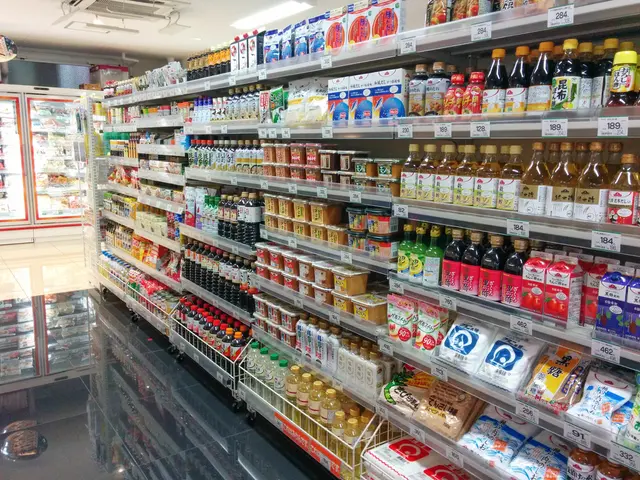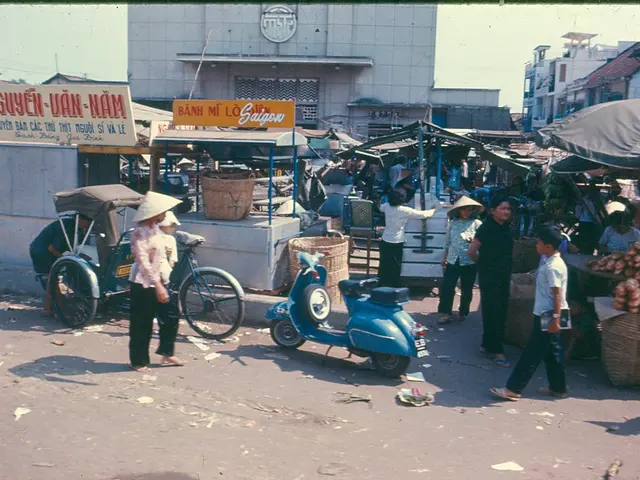Controversy over New Motorcycle Helmet Law in Thailand Among Expatriates
New Road Safety Measures in Thailand Highlighted by "Safe Roads Project"
Starting June 1st, a nationwide road safety campaign called the "Safe Roads Project" will be implemented in Thailand, with authorities reinforcing stricter enforcement of motorcycle helmet regulations in a bid to decrease road accidents and fatalities.
Thai traffic police have spearheaded this initiative, aiming to intensify checks on motorcyclists and their passengers who disregard helmet regulations. Violators now face a significantly increased fine of up to 2,000 baht, quadruple the previous penalty of 500 baht. The campaign primarily focuses on high-risk areas, such as streets near schools and educational institutions, with the ultimate goal of fostering a culture respectful towards traffic laws.
Under the revised law, both drivers and passengers on motorcycles are legally obligated to wear crash helmets consistently, irrespective of distance or location. The aim is to address Thailand's enduring issue of high road traffic injuries, particularly among motorcycle users.
Expats have raised questions regarding the helmet requirements for motorcycles fitted with sidecars, known locally as "saleng." On Reddit, one foreign resident posed a question about the applicability of this regulation, arising from a misunderstanding with his Thai wife regarding whether passengers in a saleng are exempt from the helmet requirement. Although the Royal Thai Police have yet to clarify, the current legislation does not distinguish between standard motorcycles and those equipped with sidecars. As such, all riders and passengers are assumed to be under the same safety guidelines.
Thai authorities have instructed provincial police forces to identify areas with frequent traffic violations or accidents, with a focus on increased enforcement in these locations. Repeat offenders may be subject to escalated penalties, and checkpoints are expected to become more frequent throughout the campaign.
Thailand consistently ranks among countries with the highest rates of road traffic fatalities worldwide, with motorcyclists making up the majority of those injured or killed. The government's renewed commitment to addressing this persistent public health issue is underscored by this latest move, which encompasses efforts towards both education and enforcement.
Enrichment Data
- The Safe Roads Project 2025 encompasses measures to increase helmet usage among motorcyclists and passengers, without distinction between standard motorcycles and those fitted with sidecars. Both drivers and passengers must wear helmets according to the law, and penalty fines have increased.
- Authorities have shown a willingness to address budget constraints or affordability issues as reasons for non-compliance, suggesting possible partnerships with helmet manufacturers for subsidies to further boost usage.
- High-risk areas, such as streets near schools and universities, will undergo increased checks and enforcement as part of the campaign, with the ultimate goal of fostering a culture respectful towards traffic laws.
The Safe Roads Project 2025 also focuses on health-and-wellness by promoting fitness-and-exercise through mandatory helmet use for motorcyclists and passengers, regardless of if the motorcycle has a sidecar or not. The Thai government is working towards finance solutions, such as potential partnerships with helmet manufacturers, to make helmets more affordable for all.
In the transportation sector, the Safe Roads Project is not only emphasizing road safety measures but also aiming to create a culture that values traffic laws and prioritizes health-and-wellness. This project is part of a larger industry initiative to reduce the number of road traffic fatalities in Thailand.
By cracking down on violators and implementing stricter enforcement measures in high-risk areas, the Safe Roads Project could potentially lead to a safer and healthier Thai society, improving overall well-being and establishment of a more respectful traffic culture.








